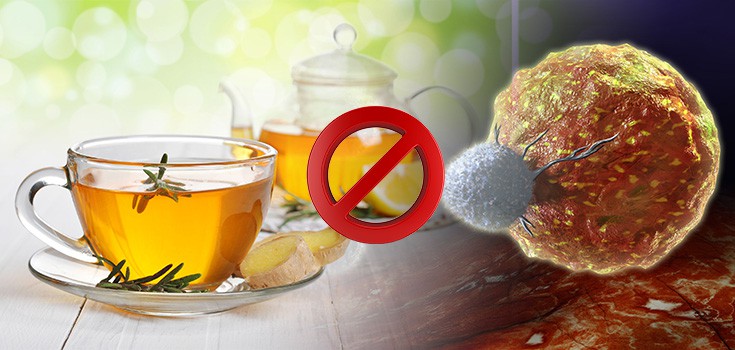Green Tea Found to Disrupt Cancer Cell Metabolism, Halt Cancer Cell Growth
By Mike Barrett
Updated October 20, 2023

When it comes to cancer treatments and research, scientists are typically looking for solutions at a molecular level. However, some research suggests investigating cancer cell metabolism could be even more effective for combatting cancer.
Specifically, one study demonstrated how green tea compounds work to fight cancer by interrupting the cancer cell’s ability to grow and flourish.
Epigallocatechin gallate (EGCG) is the most frequently cited beneficial agent in green tea. For this study, published in Metabolomics, researchers looked at the effects of the compound on pancreatic cancer cells.
According to the study, EGCG works to change the metabolism of cancer cells by suppressing the expression of LDHA (lactate dehydrogenase A), an enzyme critical for cancer metabolism and survival. While previous studies have linked green tea and EGCG to cancer treatments and prevention, none prior to this one had demonstrated how it worked.
MedicalNewsToday reports:
“Using state-of-the-art metabolic profiling techniques, Dr. Lee and colleagues found EGCG disrupts the rate of turnover of molecules – known as “flux” – through a metabolic pathway in pancreatic cancer cells.
They found EGCG disrupts metabolic flux in cancer cells in a similar way to oxamate, a known inhibitor of LDHA. They concluded that both EGCG and oxamate reduced the risk of cancer by suppressing the activity of LDHA, which in turn disrupts metabolic functions in cancer cells.”
As lead researcher Dr. Wai-Nang Lee of the Los Angeles Biomedical Research Institute explains, this research is notable because it approaches cancer treatment from a whole new angle.
“By explaining how green tea’s active component could prevent cancer, this study will open the door to a whole new area of cancer research and help us understand how other foods can prevent cancer or slow the growth of cancerous cells.”
Dr. Wai-Nang Lee
Cancer metabolism, he says, is no longer an issue of simple “glucose goes in and energy goes out,” but a mechanism for potential cancer treatment and prevention.
Other work has found that EGCG delivered intravenously was able to shrink or eliminate two-thirds of tumors tested. Previous research has connected green tea consumption to the reduced risk of digestive cancers in women as well.
Another study from 2015 focusing on green tea’s ability to fight cancer through the disruption of cancer cell metabolism aimed to identify an effective chemical combination that could induce apoptosis (programmed cell death) in cancer cells.
By utilizing metabolic profiling-based data mining (fancy!), the researchers sought to uncover potential compounds that could target cancer cell metabolism and lead to their destruction.
The researchers discovered that a compound named eriodictyol enhances the cancer-fighting effects of EGCG when they’re used together.
Of course, these aren’t the only studies to showcase the connection between green tea and cancer prevention.
